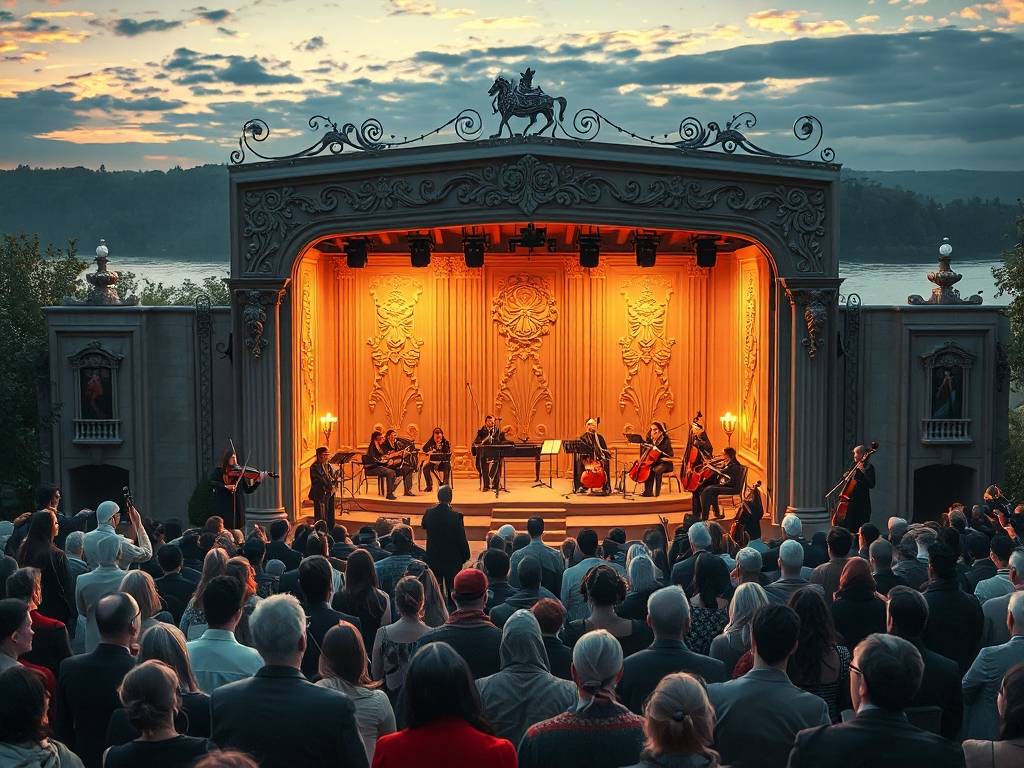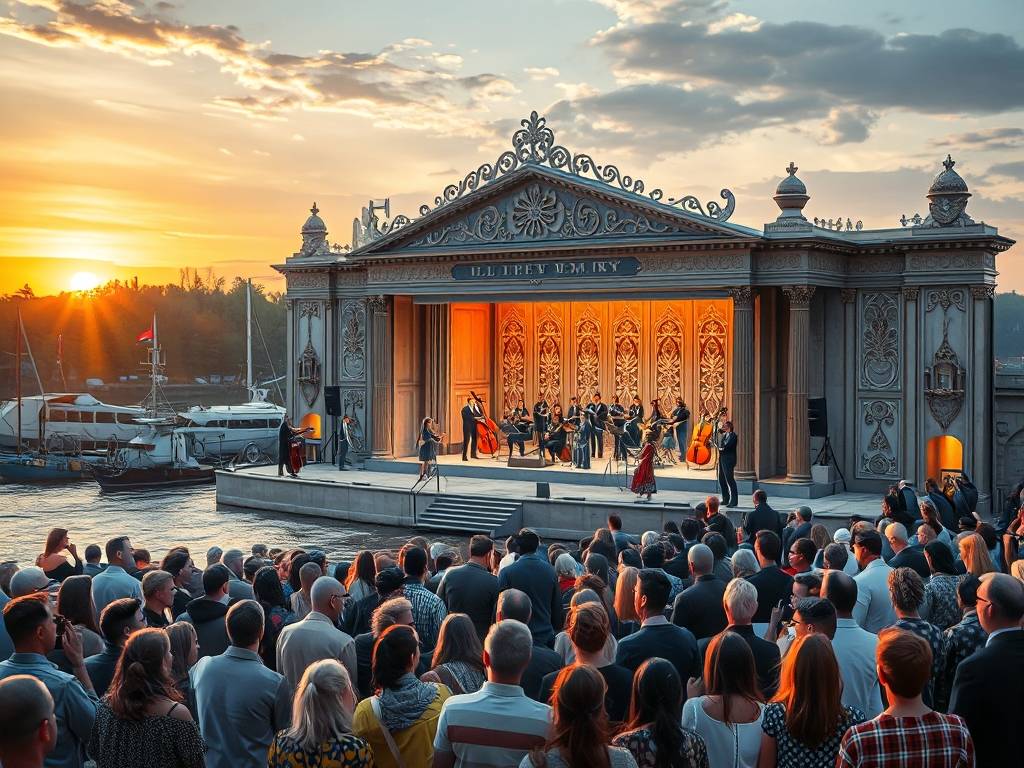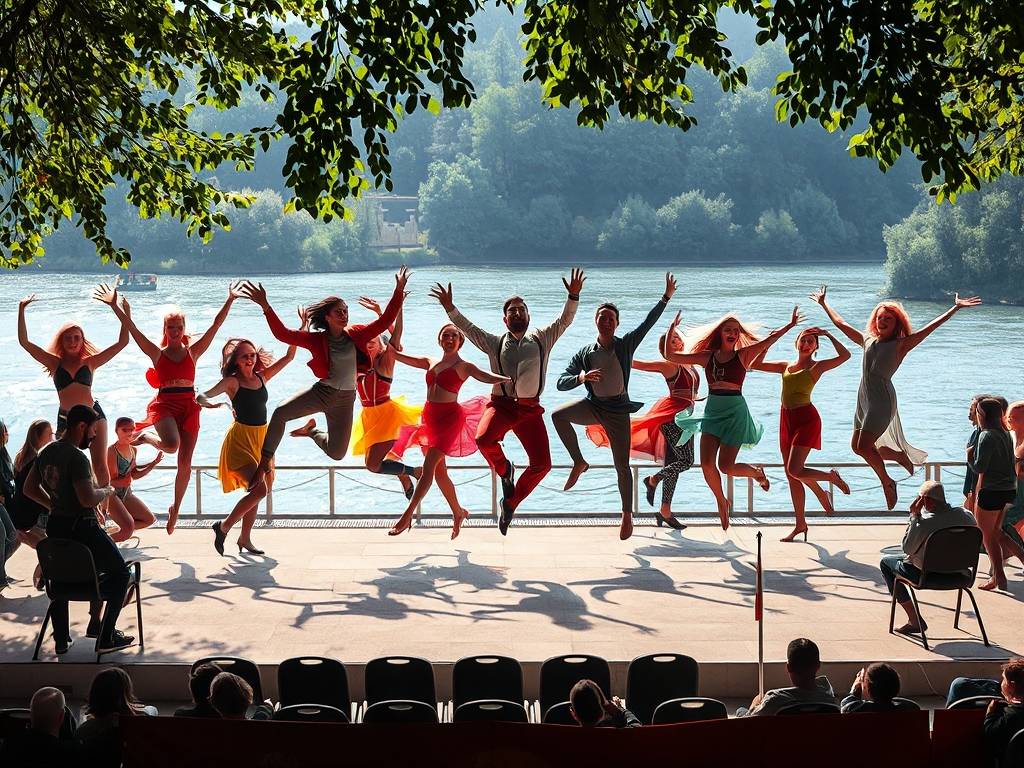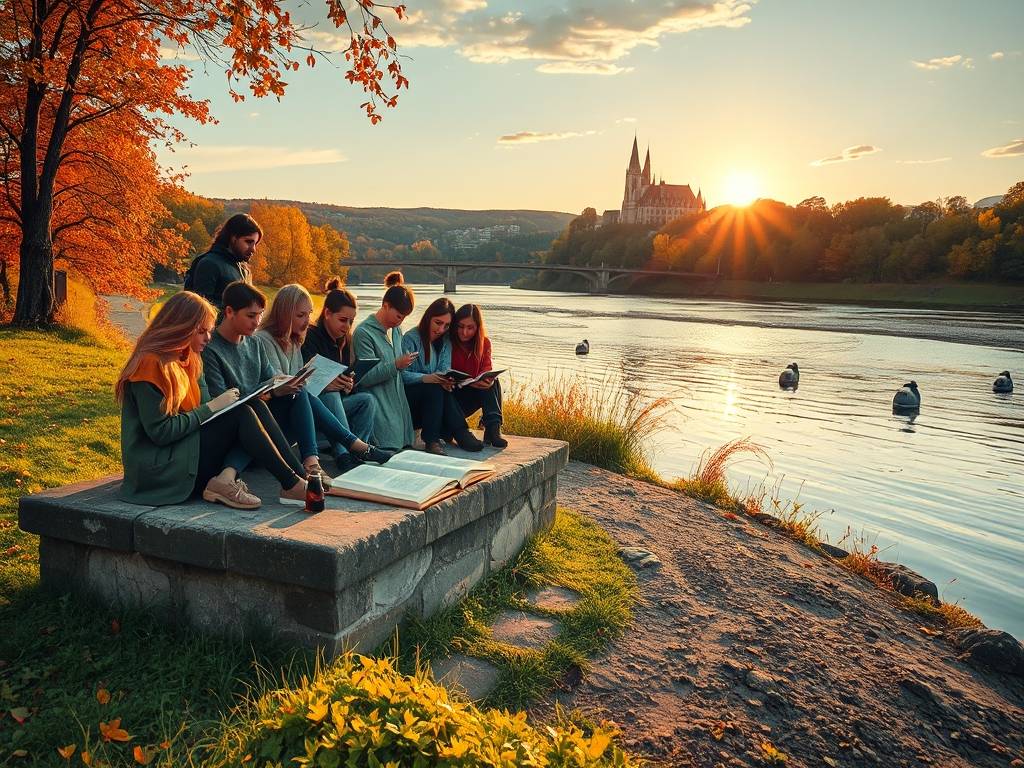Global Travel Information
Elbe River Music Competitions: Perform for an Audience
Harmony on the Elbe: Where Music Meets Its Moment of Truth
The stage is set not in a sterile rehearsal room, but under the vaulted ceiling of a historic concert hall in Dresden, or perhaps within the ornate walls of a Meissen church. Outside, the Elbe River flows, a silent, steady witness to centuries of art and history. For the young musicians gathered here for the Elbe River Music Competitions, this is the culmination of years of solitary practice, of technical refinement, and of artistic searching. Yet, the true essence of this event, what elevates it beyond a mere test of skill, lies in two words: the audience. Unlike many competitions judged behind closed doors, the Elbe River festivals are built upon the radical premise that music’s ultimate purpose is to be shared, and that the presence of a living, breathing public is not a distraction, but the final, indispensable component in the alchemy of performance.
The journey to this stage begins, as it must, in isolation. A young violinist spends countless hours alone with her instrument, wrestling with the intricate fingerings of a Paganini caprice. A pianist inhabits the complex emotional landscape of a Beethoven sonata, note by note, phrase by phrase. In this private world, the primary adversaries are technical hurdles and the score itself. The music exists in a potential state, a blueprint of greatness. The musician’s focus is inward, on the mechanics of production, on achieving a flawless execution. This phase is crucial, the foundation upon which everything else is built. Without this mastery, there is nothing to communicate. However, to stop here is to confuse the map for the territory. The Elbe River Competitions are designed to push the musician beyond this point.

The moment the performer steps onto the stage, a fundamental transformation occurs. The energy in the room shifts. The abstract concept of "an audience" materializes into a collective entity with its own pulse. There is a palpable silence, not an empty one, but a silence filled with anticipation. This is the first great challenge and the first great gift of the performance. The musician is no longer playing for themselves or for a panel of experts scribbling on clipboards; they are playing for someone. This simple shift in orientation changes everything. The technical execution must now become a vehicle for communication. A perfectly articulated scale is meaningless if it does not serve a musical line; a thunderous chord is just noise if it does not convey emotion.

This interaction is a subtle, real-time dialogue. A performer does not simply broadcast music to a passive crowd. Instead, they send out musical phrases and receive feedback in return—not through applause, but through the quality of the silence, the collective intake of breath at a moment of suspense, the almost imperceptible rustle of shared recognition when a theme is beautifully shaped. An experienced performer learns to ride this energy, to draw sustenance from it. A passage that felt labored in practice can suddenly take flight, buoyed by the audience’s engagement. Conversely, a lack of connection can make the most virtuosic passage feel empty. The audience, in this sense, becomes a co-creator of the performance. Their listening completes the circuit, giving the music a destination and a purpose.
The competitive element adds a layer of intensity to this dynamic. The performers are, of course, aware of the judges. They know that every note is being assessed for intonation, rhythm, and interpretation. This awareness can be a tyrant, tempting the musician to retreat into a safe, technically correct, but ultimately soulless rendition. The genius of the public performance format is that it offers an antidote to this pressure. By forcing the musician to engage with the audience, it pulls their focus away from their own anxiety and toward the higher goal of communication. The question shifts from "Am I playing this correctly?" to "Am I making them feel this?" This is a far more artistically honest and rewarding question. It encourages risk-taking, spontaneity, and a deeper emotional investment. The musician who connects with the audience often, paradoxically, delivers a more compelling performance for the judges as well, because they are presenting music in its truest form—as a lived, shared experience.
The setting along the Elbe River infuses these competitions with a unique character. The river itself is a metaphor for the flow of music—constant, evolving, and connecting different points in time and space. The cities that host these events, such as Dresden with its magnificent Semperoper or the porcelain town of Meissen, are steeped in a musical heritage that includes figures like Wagner and Schumann. To perform in these venues is to join a historical conversation. The audience is not just a group of contemporary listeners; they are the inheritors of this rich tradition. When a cellist plays a Bach suite in a Dresden church, they are not only playing for the people in the pews but also responding to the echoes of all the music that has resonated within those walls before. This sense of place deepens the responsibility and the inspiration for the performer, adding a layer of historical dialogue to the immediate human connection.
For the audience member, the experience is equally transformative. They are not mere spectators but active participants in a moment of artistic discovery. They witness the vulnerability and courage of the performers. They become part of the crucible in which a young artist is forged. There is a unique thrill in hearing a breathtaking performance by a relatively unknown musician, a sense of being present at the beginning of something significant. The audience’s role is one of empathy and support. Their attentive silence is a form of encouragement; their applause, a genuine affirmation. In a world saturated with recorded, perfectible music, the live competition offers the irreplaceable electricity of risk. Anything can happen. A string can break, a memory can lapse, but also, magic can occur—an interpretation so fresh and compelling that it feels like hearing the piece for the first time. The audience shares in this risk and this potential for transcendent reward.
Ultimately, the Elbe River Music Competitions serve as a powerful reminder of music’s primary social function. Music is a language of emotion, a bridge between human souls. To relegate its judgment solely to a technical committee is to ignore its very reason for being. By placing the audience at the heart of the competition, the festival affirms that technical proficiency, while essential, is only the beginning. True artistry lies in the ability to use that proficiency to touch another human being, to tell a story without words, and to create a brief, shared community bound by sound and feeling.
As the final chords of a concerto fade into the hall, and the applause erupts, the cycle is complete. The music that began as a solitary struggle in a practice room has journeyed through the artist and into the hearts of the listeners. The Elbe continues to flow outside, carrying with it the echoes of the day’s performances. For the young musicians, regardless of the final ranking, the experience of having truly performed for an audience is an indelible lesson. It teaches them that their art does not exist in a vacuum, that its power is realized only in the moment of shared listening. It is on this stage, before a living audience, that a skilled player truly becomes a musician.
相关文章
- Elbe River Themed Cruises: Music, Art & Literature Trips
- Elbe River Eco-Cruises: Sustainable Travel Choices
- Elbe River Kayak Tours: Paddle Through Scenic Areas
- Elbe River Canoe Trips: Explore the River at Your Own Pace
- Elbe River Stand-Up Paddleboarding Tours: Try a New Activity
- Elbe River Rafting Adventures: Thrills on the Water
- Elbe River Tubing Trips: Relax & Float Along
- Elbe River Fishing Charters: Hire a Guide for the Day
- Elbe River Bird Watching Tours: Spot Rare Species
- Elbe River Wildlife Safaris: Explore Nature Near the River
发表评论
评论列表
- 这篇文章还没有收到评论,赶紧来抢沙发吧~


